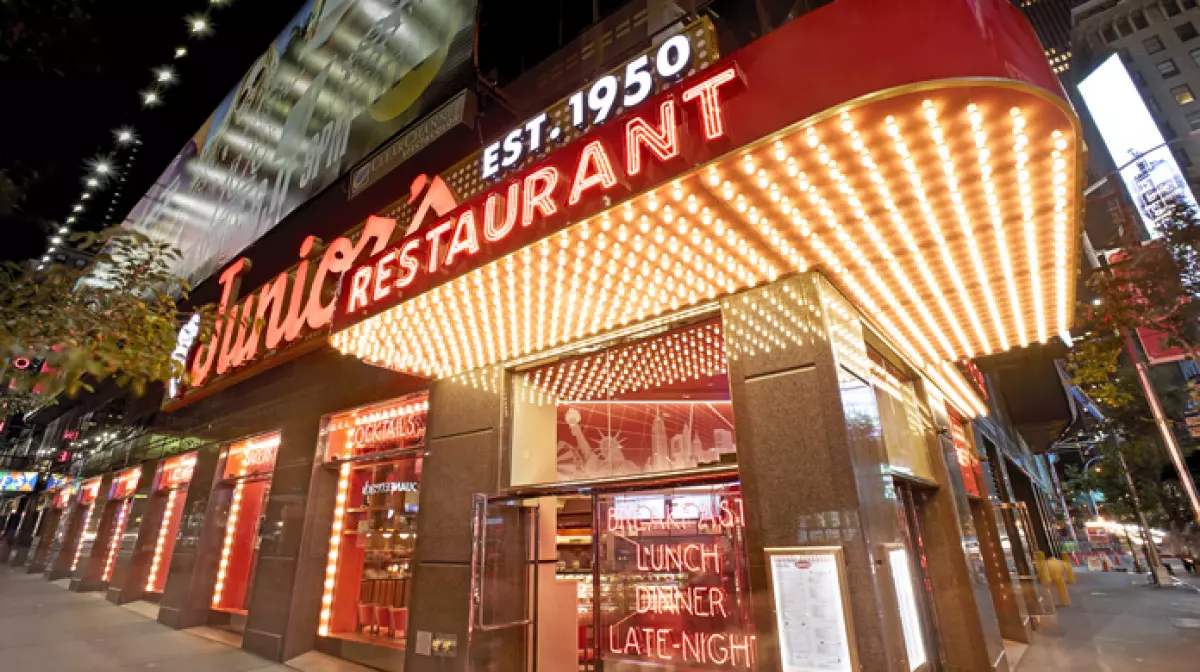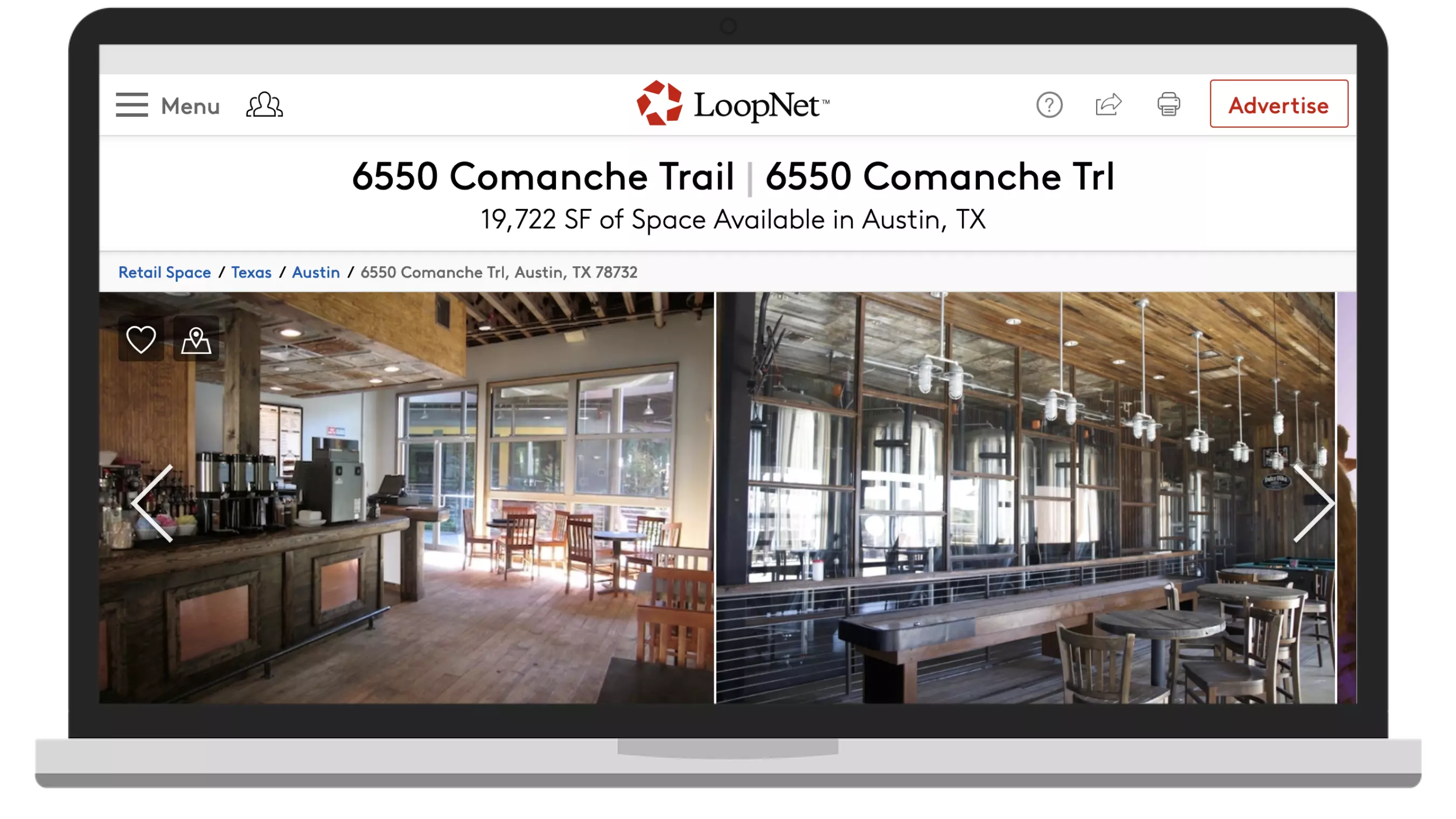Restaurateurs are well-versed in the art of food, hospitality, and customer service. But what happens when they have to dive into the world of real estate? Leasing a space for your restaurant requires a good location and solid negotiation skills. In this article, we will explore the key steps to finding an ideal restaurant space and offer tips for negotiating a commercial lease.
The Importance of Location
Your restaurant’s location can make or break its success. While a prime location can effortlessly attract customers, an obscure spot may require heavy marketing efforts. When choosing a location, consider factors like visibility, parking availability, accessibility, competition, and the area’s demographics. Ensuring your restaurant is situated in the right neighborhood can be more crucial than the menu itself.
 Junior’s Time Square restaurant is the busiest out of its three locations in the city, serving approximately 914,500 meals in 2019. However, this prime location comes with a high cost of rent. Source: Restaurant Business, 2020.
Junior’s Time Square restaurant is the busiest out of its three locations in the city, serving approximately 914,500 meals in 2019. However, this prime location comes with a high cost of rent. Source: Restaurant Business, 2020.
Steps for Leasing a Restaurant Space
Step 1: Ensure you have a good business plan.
A well-prepared business plan is essential. It not only sets your restaurant up for success but also shows potential investors and partners that you are ready for this venture. Your business plan should include thorough research into potential locations that align with your restaurant concept. For instance, a quick-service sandwich shop may thrive near a university, while a jazz supper club would excel in a downtown area with a vibrant nightlife.
Step 2: Know your budget.
Before starting your search, establish a clear budget. This will save time by eliminating options that don't fit your financial plan. Calculate projected revenue upon opening and consider worst-case scenarios. Can you still afford rent if your revenue falls short? How will uncontrollable factors, like the COVID-19 pandemic, affect your finances?
Step 3: Research potential locations.
Market research is crucial when choosing a location. Understand the area you intend to operate in and determine if the local demographic aligns with your target market. Take note of competitors and assess if your restaurant can fulfill an unmet need in the area.
Step 4: Know your square footage requirements.
Consider the size of your dining room and kitchen, ensuring they can accommodate your estimated order volume. Calculate your required square footage, as rent is often calculated per square foot. Measure spaces yourself to avoid overpaying for phantom space.
Step 5: Calculate estimated revenue needed to cover expenses.
Your rent should ideally fall between 6-10% of your projected revenues. Knowing your budget will help in negotiations and ensure that rent doesn't cut into your profits and other budget categories.
Step 6: Visit and assess potential spaces.
Touring a space in person provides valuable insight into customer experience and potential renovations. Observe foot traffic, parking availability, and nearby points of interest. Assessing the space at different times of the day and week will reveal peak and slow periods.
Step 7: Talk to past tenants.
Get first-hand information by speaking with previous tenants. They can provide valuable insights about the landlord, neighboring businesses, and operating in the area. Their experiences can offer a unique perspective that real estate websites can't provide.
Negotiating a Restaurant Lease
After finding your desired location, it's time to negotiate the lease. Being well-prepared will give you an advantage in the negotiation process. Consider providing a personal balance sheet, bank statements, tax returns, and a credit report alongside your business plan.
There are two main types of leases: gross leases and net leases. A gross lease involves a flat monthly fee, while a net lease includes additional operational costs like utilities, property taxes, and insurance.
Tips for Successful Negotiations
- Be prepared with your financials and business plan.
- Know how long the space has been vacant and the tenant turnover rate.
- Don't settle for the first offer - negotiate to get what you want.
- Consider using a commercial real estate broker for professional assistance.
- Write down well-thought-out questions to ensure you cover all important lease terms.
- Be willing to walk away if the terms don't meet your needs.
- Start with higher demands and work your way down to a compromise.
- Educate yourself on lease terms and the negotiation process.
Remember, finding the right location and negotiating a favorable lease agreement may be time-consuming, but it's worth the effort. Take your time, educate yourself, and work with professionals if needed. With the right space and a well-negotiated lease, your restaurant will be set up for success.
How to Find the Perfect Restaurant Space
Now that you have a killer business plan and know how to negotiate a lease, it's time to find the ideal restaurant space. Keep your vision in mind as you search, but also be flexible. Consider these methods for finding the perfect space:
- Visit the areas you're interested in and keep an eye out for "For Lease" signs.
- Hire a commercial real estate broker with expertise in your desired location.
- Use online services like Loopnet.com, Bizbuysell.com, and Getdigsy.com to search for available spaces.
 LoopNet is a commercial real estate site that allows users to look for various commercial and retail spaces for lease or for sale. Source: Loopnet, 2022.
LoopNet is a commercial real estate site that allows users to look for various commercial and retail spaces for lease or for sale. Source: Loopnet, 2022.
Finding the perfect restaurant space can be a lengthy process, but it is vital to your success. Don't rush the search and ensure that the effort you put into this process is worth it.
In conclusion, leasing a restaurant space and negotiating a lease require careful planning, research, and negotiation skills. With these steps and tips in mind, you can find the perfect space and secure a favorable lease agreement. Good luck with your restaurant venture!

















